
Photo by Island Light
Action Alert: Island Timberlands is preparing to log the forests of Cortes Island, near Campbell River.
As Michael Tippett notes, Cortes Island is a “birthplace of the green movement,” a cradle for Greenpeace in its early days, and home to the influential eco-wellness institute Hollyhock. And Island Timberlands is owned by a Wall Street investment firm.
The green movement vs. Wall Street? This fight is going to be epic.
Island residents have repelled invaders before, but this time it looks serious. For decades, corporations have labeled the forests on Cortes Island “socially inoperable” because of local opposition. Now they’re ramping up the pressure to get the timber out.
Cortes is home to sensitive wetlands, rare species and wild animals, who, through no fault of their own, live on private forestland. That land is now owned by Island Timberlands, which in turn is owned by Brookfield Asset Management, a Wall Street investment company.
In 2011, the good people of Cortes Island hosted a weekend workshop to get together and strategize. It was announced weeks in advance in the island newsletter. That’s how Island Timberlands got wind of it. The company quickly set up a public relations schmooze-fest to try and preempt this community gathering.
But things didn’t go quite as planned.
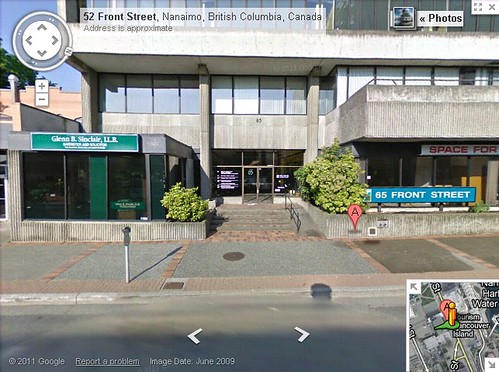
Island Timberlands office, 65 Front Street, Nanaimo. Photo: Google
When the corporate manager arrived by ferry, a sixty-person “welcoming committee” greeted him at the dock with a noise parade, improvised instruments, and lot of “cheering.” The poor schmuck I.T. sent was so undone by this display of free expression that he called the RCMP, who arrived shortly after. (There were no charges, except to the taxpayer, and the RCMP soon departed.)
The schmuck in question – operations dude Wayne French of Nanaimo – was completely unprepared for the “public relations” part of the job.
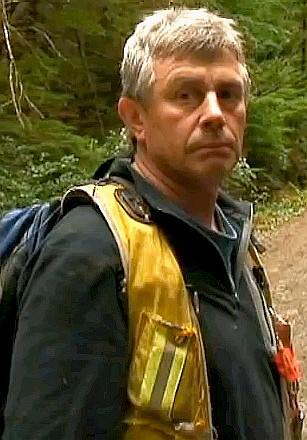
Saturday morning’s walk and talk was set up as a casual getting-to-know-you thing. We met on a dirt road, an easement into I.T.’s private forests. The temperature was mild, the atmosphere was relaxed, and the residents were chatting and joking. Except poor Wayne, who seemed a little tense.
Twenty of us were standing around talking when Wayne freaked out. “You can’t film here!” he barked at a young man with a camera. Everyone turned to look.
“There are people who can’t be here today, seniors and disabled people, and I’m filming it for them,” the young man said. He looked Wayne right in the eye and held the camera steady.
Wayne got louder. “This is private land and I’m telling you, you can’t do that here,” he hollered.
“But you invited the public,” someone piped up. “Yep, public events can be filmed,” agreed another.
The younger man kept the camera’s glass eye aimed at Wayne. “I’m making a record for the people who can’t be here.”
Wayne got red in the face and he gestured violently. “Turn that off, I’m telling you!” The islander didn’t move.
Wayne wound up for another blast, stomping and flailing, and he accidentally set off the alarm on his truck. Two dogs were locked inside, and they started barking and howling and jumping at the windows. Wayne couldn’t shut off the alarm. He aimed the key fob like a TV remote, frantically pressing with his thumb, but it kept sounding. Finally, he had to get in the truck and start the engine. Then the klaxon fell silent and the dogs sat back. Wayne shut off the motor and climbed out.
We all stood there looking at Wayne. He looked around at us, and there was a long awkward silence, which I broke.
“Of course you don’t want to be filmed today, because I.T. doesn’t want to be bound by anything you tell us. Because you guys want to be able to change your minds and do something else if you want,” I said.
“Yes, that’s right,” he replied sharply.
So there you have it.
It was just so much bullshit, although no one said that to Wayne’s face, because we are too polite.
The young man continued to film. The public relations disaster was just beginning.
People had questions that Wayne mostly evaded with vague answers, like you’d give to a demanding pre-schooler. “That’ll be up to the faller,” he kept saying. “We’ll see what gets decided.”
Several people pressed him to talk about the wetland, ringed by big cedars. There, he did come up with a definite answer: A buffer zone would protect it. “The riparian zone is marked,” he told us. This meant there would be no logging next to the marsh and the watercourses.
We were prepared to ground-truth his statements, so we trooped through the woods and across the streams and down through the towering cedars into the swamp. Once we got there, the flagging tape told a different story. Residents saw the riparian zone markers fluttering in the marsh and realized this wetland wasn’t even on the map. The flagging tape and the maps said the big cedars were going to fall.
The residents turned to Wayne for an explanation. He backpedaled furiously. “This is not the final map,” he blurted. “It’s taken from a twenty-year-old ortho photo.”
“We can all agree this is a wetland though, right?” one woman insisted. Standing ankle-deep in the marsh, Wayne agreed, carefully.
Island Timberlands owns big sections of Cortes Island. I.T., in turn, is owned by Brookfield Asset Management (BAM), a Wall Street investment firm. Coincidentally – or not – BAM also owns Zucotti Park, the site of the original Occupy Wall Street camp. Yes, these are the same 1%ers who evicted people from the park. They are corporate raiders out to liquefy any assets they can, including old-growth forests.
In exchange for clearcutting the island, the corporation is dangling the possibility of a few short-term jobs. That’s it. That’s all. No parkland, no amenities, nothing. I’m betting local people will not get those jobs.

The residents of Cortes Island have pushed back every time the corporate dudes showed up to tell them the forest was going to be logged. The dudes got sent off with a message: don’t try it.
This time, though, the pressure is mounting. Cortesians fear that the company won’t back down and they will have to put themselves on the line.
Local environmental group Wildstands has tried every reasonable path to preserving the big trees and watercourses. It opened negotiations to purchase the land (I.T. won’t sell, not even for double the market value) and launched a petition that already has almost 5000 signatures – not bad for an island of a thousand people! Next, they’re calling for people to come and bear witness.
Meanwhile, another group is recruiting and training legal observers. Island Stance emphasises that observers aren’t protestors; they monitor human rights in encounters between the public and the police.
Who owns the land? Or does the land own us? Will everyone who loves Cortes Island obey the corporate managers? Or will they obey their conscience? Will they give in to authority, or stand up for their island’s wildlife and ecosystems?
We’ll find out. See you there!
[youtube http://www.youtube.com/watch?v=qdq_iwpHiTY&w=560&h=315]
WildStands at Occupy Wall Street, January 2012
UPDATE
As of spring 2014, Island Timberlands has not started logging its holdings on Cortes Island. The company has quietly withdrawn – until next time.


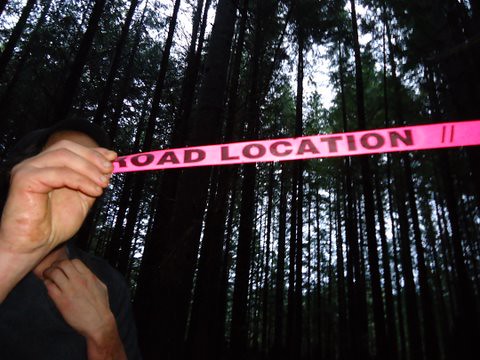
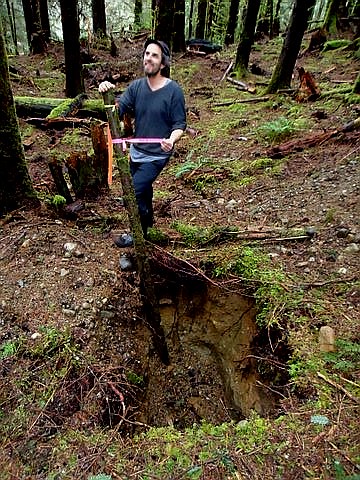 Septic field test hole near the trail. Photo: Alysha Tylynn Jones
Septic field test hole near the trail. Photo: Alysha Tylynn Jones

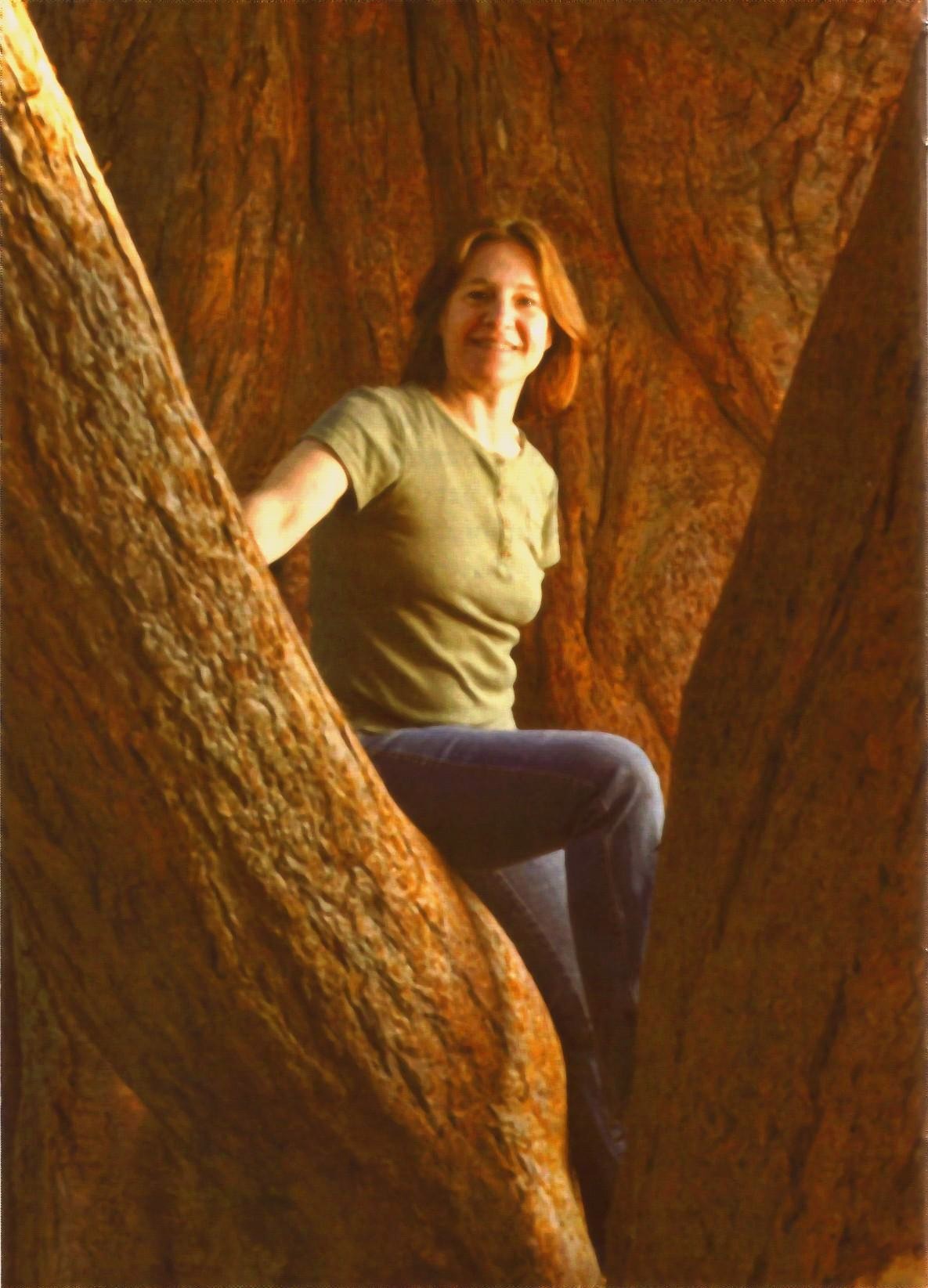
 Derrick Jensen on coming to grips with this destructive culture
Derrick Jensen on coming to grips with this destructive culture
